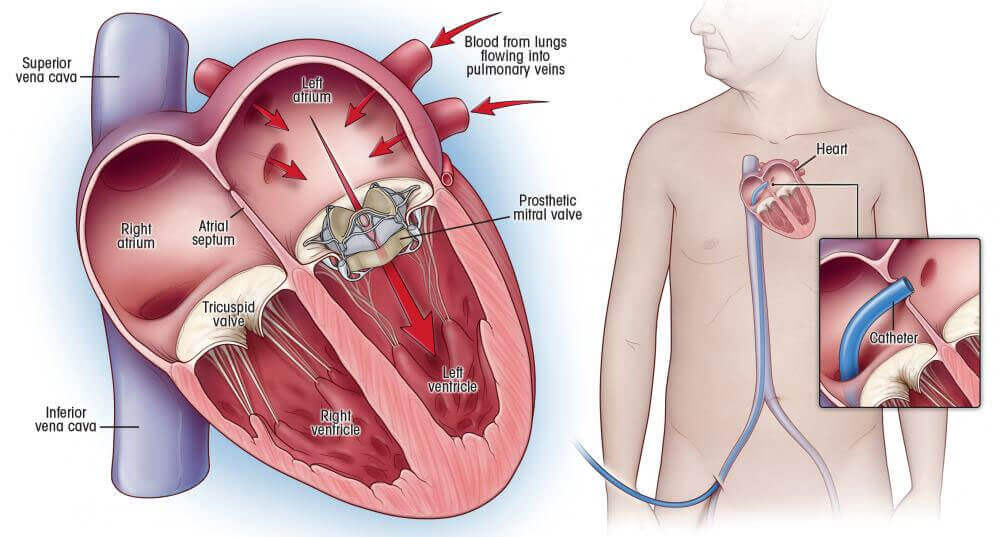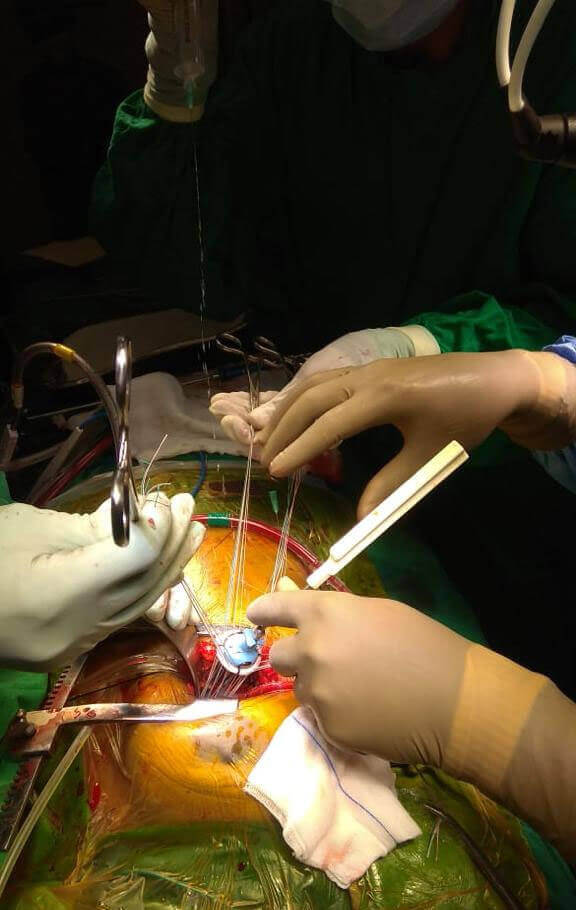Heart Valve Surgery
Valvular heart disease occurs when one or more of the heart’s valves don’t function properly, disrupting normal blood flow. The affected valve may become narrowed (stenosis) or leaky (regurgitation), putting extra strain on the heart.

Symptoms
- Fatigue, dizziness, or light-headedness
- Shortness of breath
- Chest pain or cyanosis (bluish skin)
- Swelling in legs due to fluid retention
Replacement Valves
- Mechanical Valves – Long-lasting but require lifelong blood thinners.
- Biologic Valves – Made from animal tissue, no lifelong medication, but may need replacement after 15–20 years.
Types of Valve Surgery
- Aortic Valve Replacement – treats stenosis or regurgitation, often due to bicuspid or degenerative disease.
- Mitral Valve Replacement – for valves that don’t fully open or close, causing backflow to the lungs.
- Double Valve Replacement – replacement of both mitral and aortic valves (higher risk, less common).
- Pulmonary Valve Replacement – usually for stenosis due to congenital defect or infection.
- Tricuspid Valve Replacement – rare, performed when the valve between right atrium and ventricle fails.
The Procedure & Recovery
Valve surgery is performed under general anaesthesia using conventional or minimally invasive techniques, with the help of a heart-lung bypass machine. Most patients stay in the hospital for 5–7 days. Full recovery usually takes a few weeks, depending on healing and the type of surgery performed.

Expert Care You Can Trust
With Dr. Kuntal Surana’s expertise in valve repair and replacement, patients receive advanced, safe, and personalized care to restore heart function and improve quality of life.